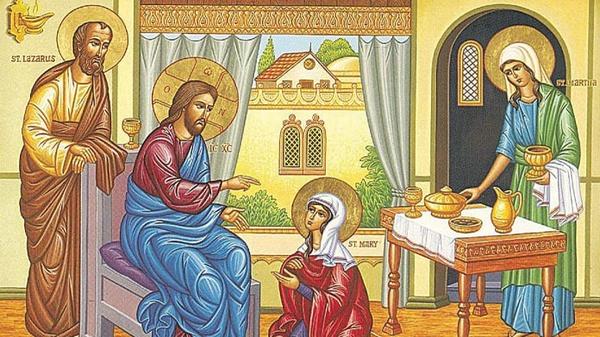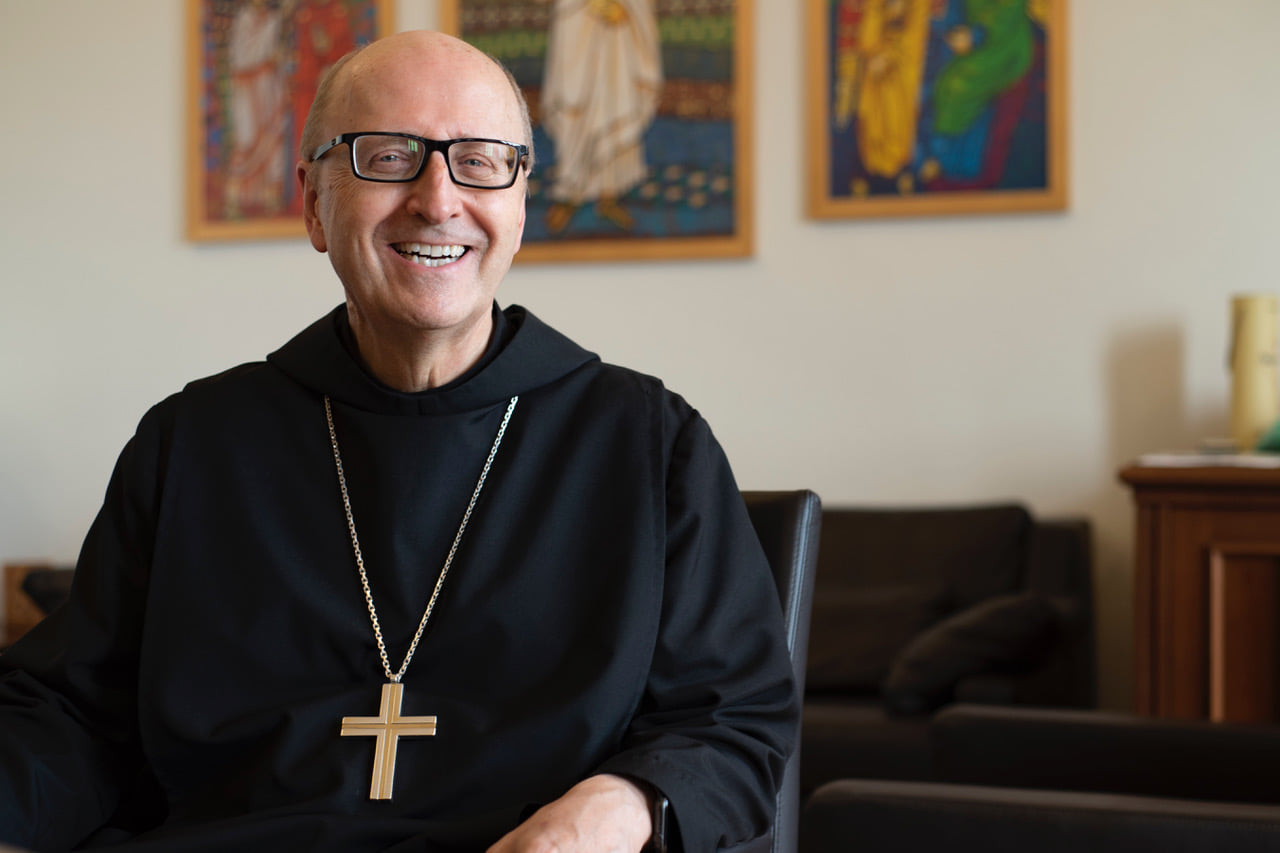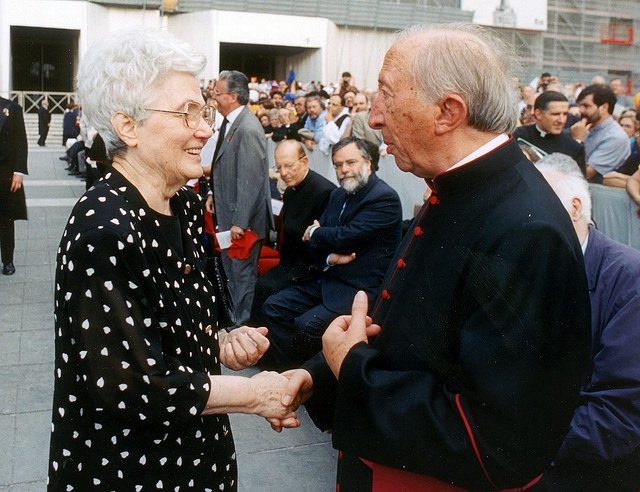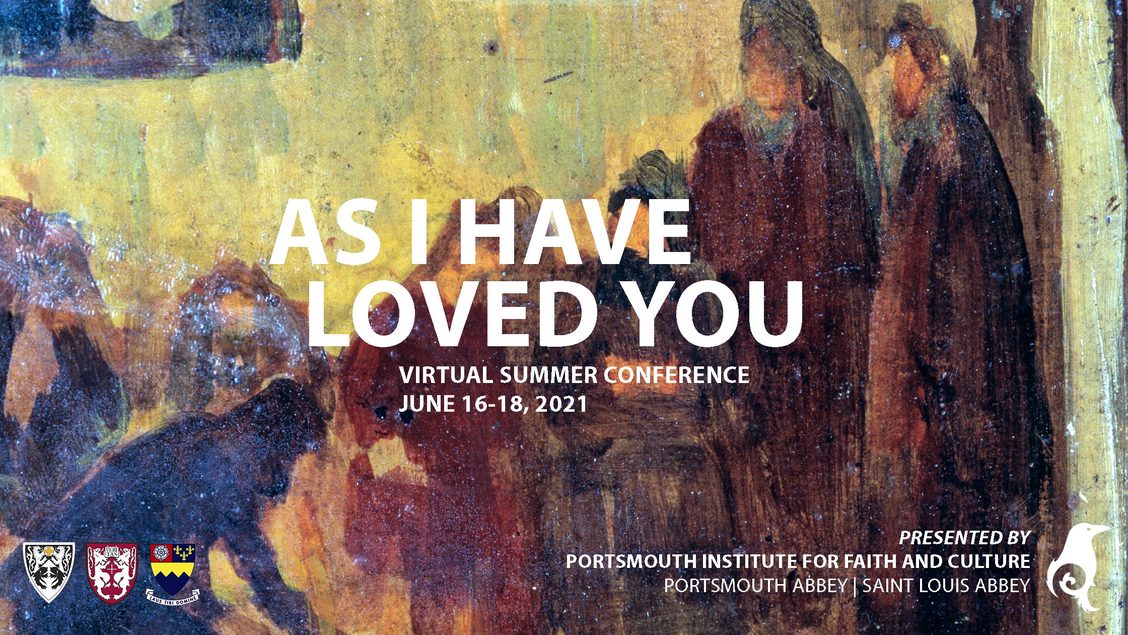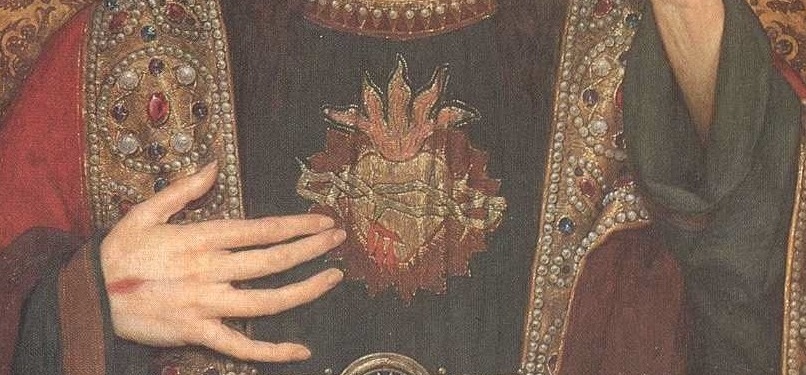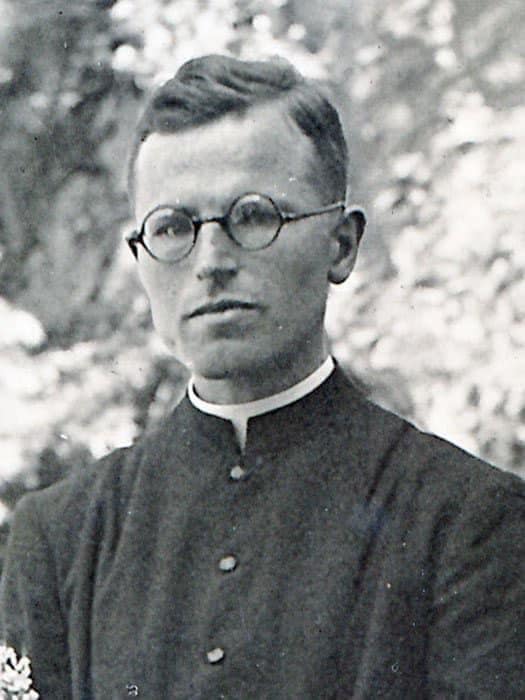The devotion to the Sacred Heart of Jesus is based on the truth that Jesus Christ is one divine person (the Second Person of the Trinity) in two natures, human and divine. Our Lord Jesus had (and, in his glory, still has) heart, blood, and everything that goes with being fully and truly human. Because our Savior is God-made-man, every part of Christ’s humanity is worthy of supreme worship and adoration. Our Redeemer recapitulates (that is, sums up) all salvation history—the entire biblical story—in himself, in his sacred humanity. The Catechism of the Catholic Church tell us that “Scripture is a unity by reason of the unity of God’s plan, of which Christ Jesus is the center and heart, open since his Passover” (CCC 112). St. Thomas Aquinas put it this way:
“The phrase ‘heart of Christ’ can refer to Sacred Scripture, which makes known his heart, closed before the Passion, as the Scripture was obscure. But the Scripture has been opened since the Passion; since those who from then on have understood it, consider and discern in what way the prophecies must be interpreted” (St. Thomas Aquinas, Expos. in Ps 21, 11) (quoted in CCC 112).
In chapter 9 of St. Matthew’s gospel, we read that Jesus saw the crowds and that his heart was moved with pity for them “because they were troubled and abandoned, like sheep without a shepherd” (Mt 9.36). In Christ, God fulfilled his promise given through the prophet Jeremiah: “I will give you shepherds after my own heart, who will feed you with knowledge and understanding” (Jer 3.15). Yet the Lord has promised even more than this: he has promised to transform us in Christ’s likeness; and he likens this conversion is to a heart transplant. Through the prophet Ezekiel, the Lord promised,
I will sprinkle clean water upon you, and you shall be clean from all your uncleannesses, and from all your idols I will cleanse you. A new heart I will give you, and a new spirit I will put within you; and I will take out of your flesh the heart of stone and give you a heart of flesh (Ez 36. 25-6).
St. Matthew’s gospel tells us that Jesus heart was moved with pity for the crowds, and this is a good translation. The Greek word that is often translated as “heart” is splanchna. It means literally the inward parts, the viscera, the very guts: it’s not an especially pretty expression. Often in the Bible, it refers especially the inward parts of a sacrificial victim. The expression “heart of Jesus” is a symbolic way of speaking of his entire humanity, which he received in the womb of the Blessed Virgin Mary.
God has willed “to reconcile to himself all things, on earth or in heaven, making peace by the blood of his cross” (Col .120). The Sacred Heart image represents Christ’s love for us, even unto death on the Cross, for Christ Crucified is the only effective reparation and atonement for the sins of mankind. Jesus’ heart—his sacred humanity— is the only locus of reconciliation and peace with God, and of hope and unity for mankind. On the Cross, our Redeemer’s side was pierced by the lance: from the pierced heart of Jesus’ humanity flowed both blood and water. In Catholic Tradition, the water represents baptism and the blood symbolizes the Eucharist: the two streams of salvation (CCC 766, 1067, 1225; Jn 19.34).
To make reparation to the Sacred Heart is to offer faith and adoration and repentance to our Lord, especially in the Blessed Sacrament. We do so for ourselves and on behalf of sinners and unbelievers (CCC 478), imploring an outpouring of grace that will open their hearts to receive him. As the Catechism says, the Catholic spiritual tradition “emphasizes the heart, in the biblical sense of the depths of one’s being, where the person decides for or against God” (CCC 368). St. Paul writes to the Philippians that he is to be poured out “as a libation [a drink offering] upon the sacrificial offering of your faith” (Phil 2.17). In making reparation, we are offering our very selves in faith, body and soul, with all our human relationships, for one another in the Body of Christ. St. Luke tells us that, regarding the mystery of her divine Son, Mary “kept all these things, pondering them in her heart” (Lk 2.19; cf 2.52). The Immaculate Heart of Mary is the human heart purified and transformed by the grace of Christ.
The devotion to the Sacred Heart of Jesus as we now know it owes much to St. Margaret Mary Alacoque. It was to the private revelations given to her that we owe the feast of the Sacred Heart in the octave following Corpus Christi. In June 1676, St. Margaret Mary received the greatest of the visions:
One day, kneeling before the Blessed Sacrament during the octave of Corpus Christi, I was deluged with God’s loving favors… He disclosed his divine Heart as he spoke: “There it is, that Heart so deeply in love with men, it spared no means of proof, wearing itself out until it was utterly spent! This meets with scant appreciation from most of them; all I get back is ingratitude—witness their irreverence, their sacrileges, their coldness and contempt for me in this Sacrament of Love. What hurts me most is that hearts dedicated to my service behave in this way. That is why I am asking you to have the Friday after the octave of Corpus Christi set apart as a special feast in honor of my Heart—a day on which to receive me in Holy Communion and make a solemn act of reparation for the indignities I have received in the Blessed Sacrament while exposed on the altars of the world. I promise you, too, that I shall open my Heart to all who honor me in this way, and who get others to do the same; they will feel in all its fullness the power of my love.
Our Lord asked in a special way through Margaret Mary for Catholic France and her king to be consecrated to the Sacred Heart. The Heart of Jesus wills for political rulers and states to acknowledge publicly Christ’s Kingdom as the basis of rightful authority and the common good. Where Catholics are in the minority, we are still called to offer prayers of consecration and reparation, for our country and for its conversion and for the freedom of Holy Church. In addition to the Feast of the Sacred Heart, Catholics are encouraged to observe the First Friday of each month by attending Mass if possible, by making visits to the Blessed Sacrament, and by the use of prayers such as the Litany of the Sacred Heart. St. Margaret Mary was assured by our Lord that the faithful who did this for nine consecutive months would receive special graces in this life (such as peace and conversion in families) and especially at the hour of death. Priests would be given the ability to touch even hardened hearts. St. John Vianney, the patron of parish priests, expressed this truth plainly: “The priesthood is the love of the heart of Jesus” (CCC 1589). Through the faith and love and penance of the faithful remnant, the way of salvation and conversion may yet be opened for the many who do not yet know or follow the Lord Jesus, our Redeemer.
Dom Ambrose, OSB, homily for the feast, 2021

